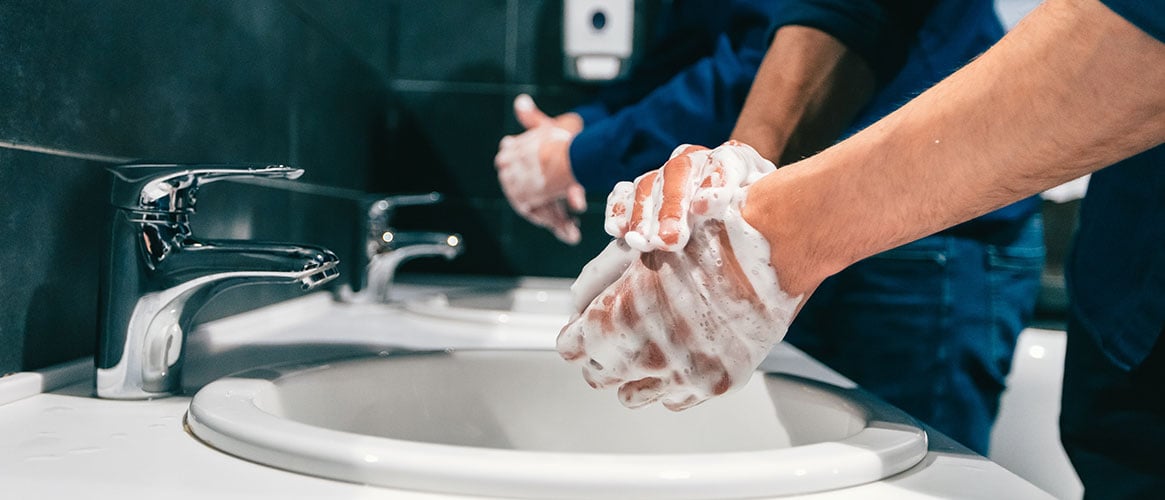Personal hygiene involves keeping our body clean and it is important that employees practice good hygiene in the workplace. Workers who pay attention to personal hygiene can prevent the spread of germs and diseases, reduce their exposures to chemicals and contaminants, and avoid developing skin allergies, skin conditions, and chemical sensitivities.
Disease prevention
Hygiene in the workplace promotes good overall health and wellness and can prevent the spread of illness and disease that can spread viruses and bacteria. Good hand washing and scrubbing with soap and water helps to remove germs, contaminants, and chemicals. It can also prevent exposure by ingestion and cross-contamination of the surfaces and objects we touch. Workers should wash their hands before they take breaks at work to eat or drink. To control the spread of germs that can cause the flu or common cold, workers should wash their hands whenever they cough, sneeze, or blow their noses, and whenever they are around someone that is sick.
Personal protective equipment (PPE)
PPE such as gloves, goggles, facemasks, coveralls, boots, and other equipment provides a physical barrier that can protect workers from exposure to injury, contact with hazardous substances, and the spread of infection or illness. It is important to check the PPE often for excessive contamination, wear, tears, cuts, or pinholes. Workers should clean, decontaminate, or replace protective equipment frequently in accordance with the manufacturer’s instructions, to make sure the equipment doesn’t collect or absorb irritants. If protective equipment becomes too soiled during the job, the worker should stop and replace it with clean equipment.
How to talk to your employees about personal hygiene
Signs of poor hygiene may include body odor, bad breath, or soiled clothing. If these personal practices go unchecked, they can impact your workplace, affect productivity, and lower workplace moral. Conversation about personal hygiene concerns is a delicate subject and should be addressed tactfully and sensitively.
- Create a written workplace standard or policy to outline the company’s expectations and review it with your staff and new hires.
- Include the topic of personal hygiene in your regular safety meetings as part of your workplace safety program.
- Increase awareness in the workplace by putting up posters to remind employees to practice good hygiene.
What do employers need to provide to employees to ensure proper hygiene
Cal/OSHA requires employers to provide washing facilities for maintaining personal cleanliness in every place of employment.
- Ensure handwashing sinks are equipped with soap and paper towels or a hand dryer.
- Provide hand sanitizing bottles or dispensers in areas where soap and water are not accessible.
- Supply disinfectant wipes or cleaners for disinfecting common areas.
Talk to your employees about proper hygiene. It promotes good health, prevents the spread of illness and disease, and greatly enhances professional success in the workplace.
